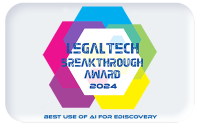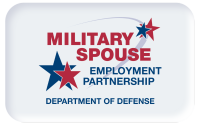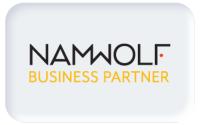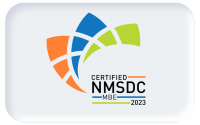I recently had the privilege of speaking in a session with one of our clients, Andrew Atkins of Smith Anderson, at the ABA Forum on Construction Law’s (FCL) Annual meeting. The Forum is a part of the American Bar Association (ABA) and comprises more than 6,000 members, including lawyers, judges, academics, and other construction professionals. Members of the Forum represent all segments of the construction industry, from owners, design professionals, general contractors and construction managers to suppliers and insurers. The Forum provides a platform for members to exchange ideas and best practices, participate in continuing legal education programs, and collaborate on legal projects related to construction law.
This year’s annual conference in Vancouver last week was titled The Future of Construction Law and included topics such as a retrospective and “look ahead” on transformative events in construction law, a future outlook on construction contracting, emerging trends in arbitration and alternative dispute resolution, the implications of big data on construction claims, trends in construction insurance and bonding, and trends in employment and workforce issues impacting the construction industry. Overall, the goal of the meeting is to promote excellence in the practice of construction law and provide insights into emerging issues in the field and with all the various attendees and presentations, I really think they knocked it out of the park this year.
The Revolution and Evolution of Discovery Disputes in the Digital Age
The session Andrew and I led was titled The Revolution and Evolution of Discovery Disputes in the Digital Age, and we focused on key dispute areas in the discovery process where great planning and excellent partnership between counsel and their eDiscovery partners can revolutionize how firms approach discovery.
Discovery disputes are disagreements between the parties about the scope, timing, or methods of discovery. They can be expensive and time-consuming and ultimately delay the resolution of the case. There are a number of factors that can contribute to discovery disputes, including complexity of the case, the amount of discovery that is required, parties’ differing interpretations of the rules of discovery, and parties’ unwillingness to cooperate. However, these factors can be mitigated by carefully drafting discovery requests, responding to discovery requests promptly and fully, and meeting and conferring with the other party to discuss discovery issues early and often.
Our general thesis for our session was that the partnership between counsel and their eDiscovery partner is paramount to executing a successful discovery process. Together we can avoid costly mistakes, protect the client’s interests, and get cases moving forward to meet all the various deadlines involved in discovery.
Andrew’s role in the presentation was to discuss the importance of proportionality and cooperation in the discovery process, both of which can significantly reduce the amount and type of discovery disputes opposing parties have in a matter. He was also able to convey many situations he has found himself in, from an eDiscovery perspective, where he’s encountered pitfalls or disputes arose in the discovery process.
My role was to provide guidance on all the various technical processes related to eDiscovery where disputes usually pop up. Technology is constantly changing. New products and new data types are emerging all the time, so it’s important to have a partner who can help you stay up-to-date on the latest developments to ensure that you are using the most effective tools and methods for your eDiscovery needs.
Key Highlights and Takeaways
A few key areas Andrew and I focused on were the importance of a well-written ESI protocol, which is the agreement between the parties that sets forth the procedures for the collection, processing, and production of electronically stored information (ESI). A well-thought-out and comprehensive ESI protocol can save time and money, and can help to ensure that the discovery process is fair and efficient without many disputes along the way.
We emphasized that it is important to work with an eDiscovery partner early and often in the discovery process to ensure that you are collecting and preserving the right information, that you are reviewing and analyzing the information efficiently, and that you are producing the information in a timely and compliant manner. The sooner you start working with a partner, the sooner they can help you identify and collect relevant information, and the sooner you can get your case moving forward at the necessary pace.
And we ended our session by focusing on some of the common disputes we both see in the discovery process – scope of collection in regards to custodian and data types, search terms and use of AI for collection and review, and new media and data types we are seeing more frequently, especially in the construction industry. Texts, IMs, new collaboration tools, and workflow apps are popping up to help construction companies manage their day-to-day operations on projects. However, collecting from these innovative tools and reviewing the information can be challenging. We discussed ways to reduce volume by considering what information counsel really needs to argue the case and ways to produce documents so you are providing or receiving only what is needed without a lot of extraneous material.
Conference Conclusion
I started this blog by saying it was a privilege to speak with Andrew at the ABA’s FCL, and I meant it. Andrew and I have been working together for over five years, and it is gratifying to work so closely with someone who understands the importance of this counsel/eDiscovery partnership.
Andrew knows his stuff, but he also knows when to consult with technical experts. He started out the session by saying that while he knows that understanding eDiscovery is important for him when litigating matters, it really is only about 30% of his focus (as he has to focus on the legal, non-technical issues of cases). He said he relies on the TCDI team for the additional 70% focus because he knows that learning and evolving in eDiscovery is 100% what we do.
Thanks to the ABA’s FCL, to our coordinator Lara Albright Yost of Carrington Coleman (who kept us in line), and to Andrew Atkins of Smith Anderson for having me in Vancouver with them – it was a great group of construction professionals who got together to make sure the Future of Construction Law is a bright one. As Timbuk 3 said in the 80s, “The future’s so bright, I gotta wear shades!”





